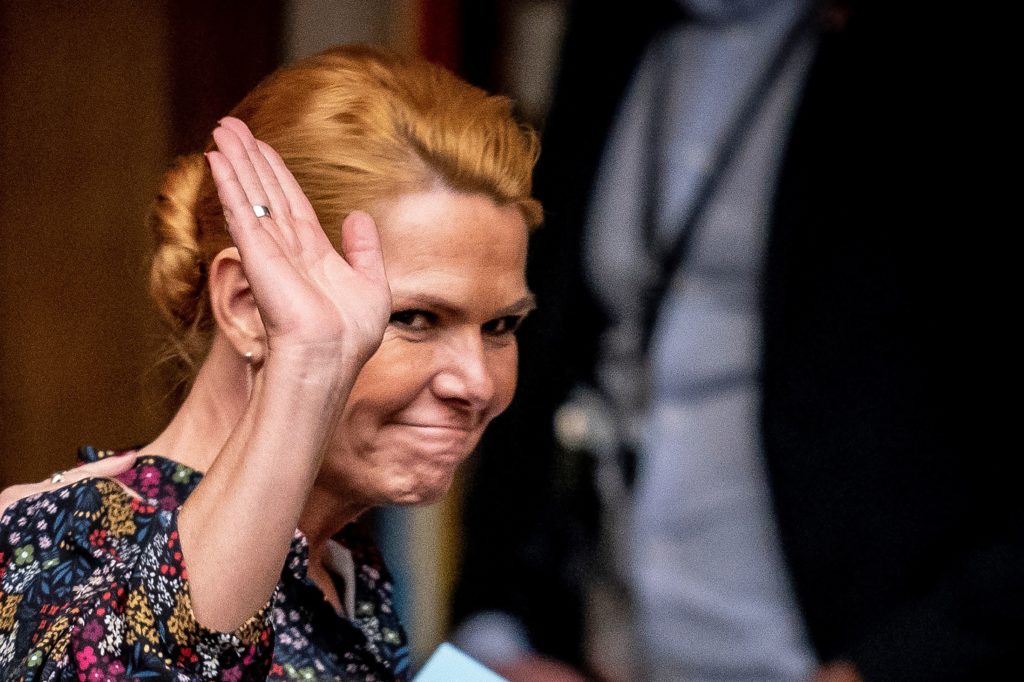COPENHAGEN — Danish Prime Minister Mette Frederiksen on Wednesday called a general election in the wake of a scandal over the slaughter of the country’s entire 17-million mink population in 2020.
The Danes will go to the ballots on November 1, with a total of 14 parties contesting the parliament’s 179 seats.
Frederiksen’s announcement has been expected for months. One of the government’s three supporting groups, the Social Liberal party, threatened in July to withdraw its backing from Frederiksen if she did not announce a vote before Wednesday.
The government has faced widespread criticism over a 2020 order to cull all of the country’s farmed mink over fears they could spread a mutated variant of the coronavirus. Although Frederiksen was only given a simple reprimand for her role in the scandal after an official inquiry, she has since slid in the polls.
Announcing the election, Frederiksen said that it may seem “peculiar” to hold a general election “in the middle of an international crisis, a security crisis, an energy crisis and an economic crisis” but that it is “nevertheless what a majority in parliament wants.”
Some have criticized the Social Liberals for forcing Denmark into an election right now, especially as the attacks on the undersea Nord Stream gas pipelines partly occurred in Denmark’s exclusive economic zone in the Baltic Sea.
Frederiksen also said that she hoped to form a broad government with parties from both sides of the political center.
Fall from grace
Most polls suggest Frederiksen and her Social Democrat party will remain the most popular party, but its coalition with supporting parties could lose its majority. That would mean an opposition group, led by the center-right Liberal Party and the Conservative People’s Party, would have the advantage.
Even so, the vote is likely to be close, given the difference between the two sides is within the polls’ margins of error.
For weeks, polls showed that Søren Pape Poulsen, leader of Denmark’s Conservatives, would be one of Frederiksen’s main competitors to become Denmark’s next prime minister.
In a break from tradition, Poulsen announced he would run in the elections as a prime minister candidate, alongside Frederiksen and Liberals leader Jakob Ellemann-Jensen. Previously, the so-called blue bloc parties had worked together to back the Liberals leader as prime minister if they secured a majority in a general election.
But Poulsen has recently stumbled in the polls after revelations that his now ex-husband had pretended to be Jewish. It also emerged that Poulsen’s ex-husband had no biological relationship to a former Dominican Republic president he had claimed was an uncle.
Maybe more surprising still is the comeback of Lars Løkke Rasmussen, the former prime minister who started his own party, the Moderates, after resigning from the Liberals in 2021. Although Rasmussen’s party is polling at only 4 percent, none of the three prime ministerial candidates would be able to occupy the office without Rasmussen’s support.
That means all eyes will be on Rasmussen, once again, as he will have to decide in the coming weeks who to put his weight behind — a decision he has so far refused to make.
New party on the block
Perhaps Frederiksen’s most surprising competitor in the election will be former immigration minister Inger Støjberg, who started a new political party, the Danish Democrats, less than one year after she was sentenced to two months in jail for ordering the illegal separation of refugee couples.
Having served her sentence, Støjberg is now bidding to return to parliament with her newly formed party. Given Støjberg’s reputation as an immigration hardliner, she is appealing to a large group of voters, many of whom live outside the big cities and fear new migrants.
Støjberg’s party is polling in fourth place, according to the most recent polls, closely behind the Liberals and Conservatives.
Denmark is renowned for having one of the EU’s strictest immigration policies, including a rule granting border officials the authority to seize valuables to cover the cost of new arrivals’ stay. More recently, Denmark announced a plan that would see asylum seekers transferred to an offshore facility in Rwanda while their claims are processed.




